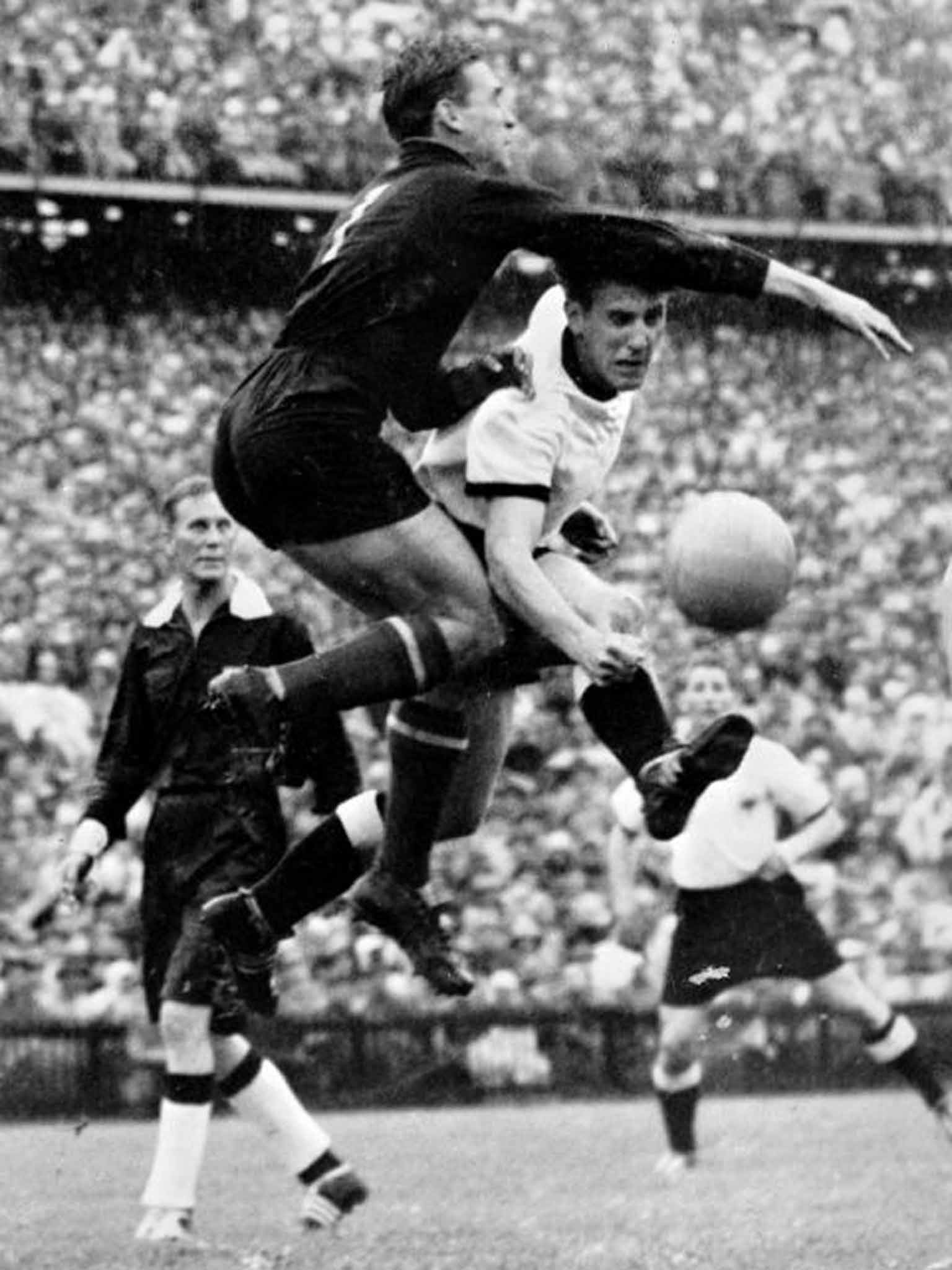Gyula Grosics: Trailblazing member of 'the Magnificent Magyars' who became arguably football's first 'sweeper-keeper'

Gyula Grosics was a trailblazing goalkeeper for one of the most revered football teams of all time. He guarded the net for Hungary during three decades, peaking for the Magnificent Magyars in the 1950s when they annihilated England twice and changed the perception of how the game could be played, the only major blot on their record being a shock defeat to West Germany in the 1954 World Cup final.
Grosics entered folklore as a revolutionary performer because of an unusually adventurous approach to his work. Not content to remain in his six-yard box making the occasional acrobatic save, the Hungarian became arguably the first sweeper-keeper, ready to charge from his line, even beyond the confines of his penalty area at need, effectively becoming an extra centre-half.
In this swashbuckling style, he was also adept at starting sudden attacks with incisive, accurate throw-outs to his full-backs or wingers. He was a pioneer, too, in launching the all-black kit eventually embraced by the Soviet Union hero Lev Yashin and other European goalkeepers.
Yet for all his derring-do Grosics, "The Black Panther", was no giant, standing only 5ft 8in but possessed of remarkable spring in his heels and utterly refusing to be restricted by his lack of physical stature. Equally, away from the game he was not daunted by the turbulent political scene in his homeland, even though his open hostility towards the ruling Communist regime caused much distress and had an adverse effect on his career.
Born into a poor coal-mining family, he was destined initially for the priesthood as a means of escape from a debilitating life below ground, but his prowess as a footballer changed all that. Grosics joined his local club, Dorogi Banyasz, in 1945 and impressed mightily with his agility, courage and an assurance with the ball at his feet that was exceedingly rare in a keeper.
In 1947 he stepped up to Mateosz of Budapest, maintaining his progress so spectacularly that soon he collected the first of his 86 international caps, but it was after he was signed by Honved, the Hungarian Army club also based in the capital, in 1950, that he developed into a world-class operator. He was instrumental in lifting the domestic championships of 1950, 1952 and 1954, and he shone for Hungary as they won the gold medal at the Helsinki Olympics of 1952, beating Yugoslavia 2-0 in the final.
Meanwhile Grosics was a colossal influence in coach Gustav Sebes' magical side as it compiled a record of 42 wins and seven draws between 1950 and 1954, including the 6-3 undressing of England at Wembley in November 1953 and the 7-1 drubbing of Walter Winterbottom's hapless combination six months later at the Nep Stadium. The stellar likes of the rampant marksman Ferenc Puskas, confusingly deep-lying centre-forward Nandor Hidegkuti and dynamic wing-half Jozsef Bozsik dominated all-comers with a fearsome cocktail of pace and power allied to enchanting skill.
So after they had thrashed West Germany 8-3 at an early stage of the 1954 World Cup finals in Switzerland, then disposed of Uruguay and Brazil in the quarter- and semi-finals respectively, a climactic triumph over the Germans in Berne seemed a formality. Alas, after taking a 2-0 lead, Hungary slumped to a 3-2 defeat with Grosics conceding one of the goals through an uncharacteristic slip on the wet turf.
Still he remained a star, but in mid-decade his impetus was jolted as he fell foul of the Communists. He had attempted to defect in 1949 and now he was accused of treason and espionage, placed under house arrest and suspended from football. However, there was no real evidence against him and he went back to the game in 1956, taking his family abroad but being forced to return through political pressure. He was transferred, without consultation, to Tatabanya, back in rural mining country.
Now Grosics flourished anew, captaining a Hungary team weakened by serial defections to the World Cup finals of 1958, from which they were eliminated by Wales in a group-stage play-off, and of 1962, when they lost a quarter-final to Czechoslovakia. Thereafter he retired as a player, then coached briefly and continued to remain politically active, becoming a member of the Hungarian democracy movement while always regretting that he had been prevented by the Communists from playing for his favoured Budapest club, Ferencvaros.
There was to be a whimsical twist to his story. Anxious to honour the great man, Ferencvaros staged a friendly with Sheffield United in 2008 and invited the 82-year-old to stand in goal for the opening minutes. And so he did, his trademark all-black outfit in stark contrast to his slicked-back white hair, and he got a touch on the ball before leaving the action for the last time, a fitting end to a remarkable career.
Gyula Grosics, footballer: born Dorog, Hungary 4 February 1926; died Budapest 13 June 2014.
Subscribe to Independent Premium to bookmark this article
Want to bookmark your favourite articles and stories to read or reference later? Start your Independent Premium subscription today.

Join our commenting forum
Join thought-provoking conversations, follow other Independent readers and see their replies